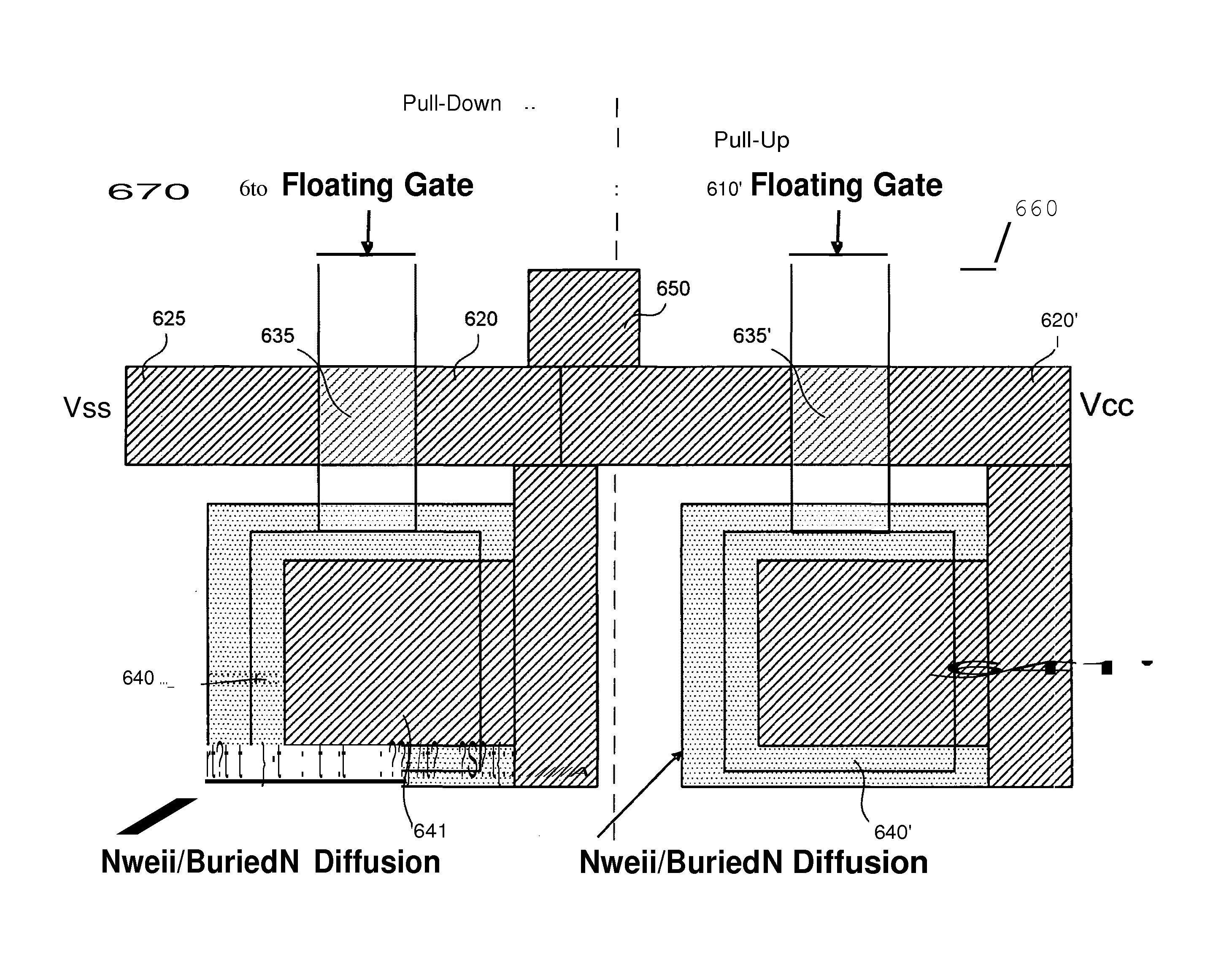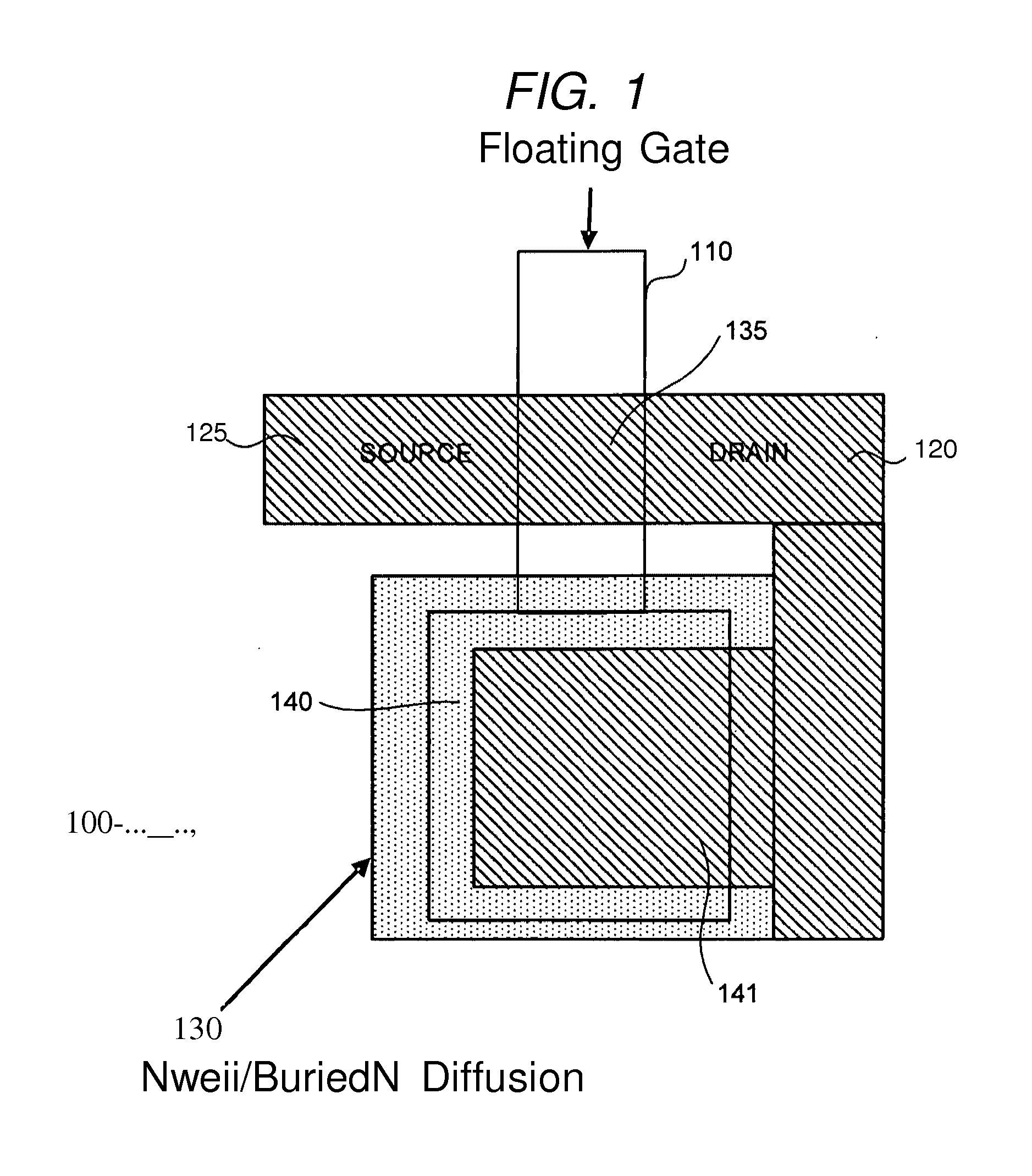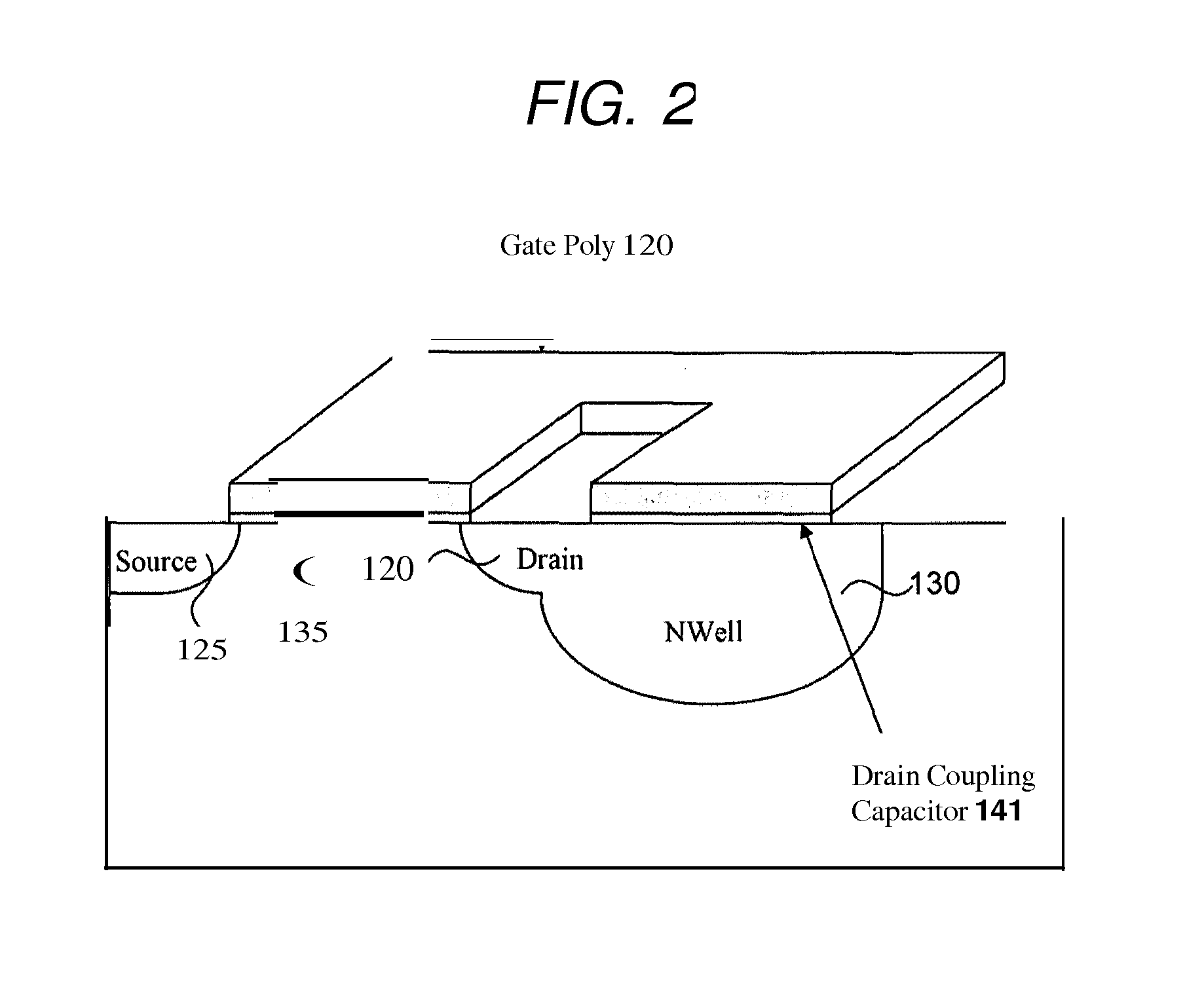Non-volatile one-time-programmable and multiple-time programmable memory configuration circuit
a configuration circuit and non-volatile technology, applied in multi-state logic, digital storage, instruments, etc., can solve the problems of inability to optimize the device, the amount of energy consumption during programming is self-limiting, and the otp and mtp memory incorporating still comes at the expense of some additional processing steps
- Summary
- Abstract
- Description
- Claims
- Application Information
AI Technical Summary
Benefits of technology
Problems solved by technology
Method used
Image
Examples
Embodiment Construction
[0024]The present disclosure concerns a new type of non-volatile configuration circuit (preferably single poly) that can be operated either as an OTP (one time programmable) or as preferred device structure is fully compatible with advanced CMOS logic process, and would require, at the worst case, very minimal additional steps to implement.
[0025]A unique aspect of the present device is that the floating gate of the memory cell structure is electrically coupled strongly through a variable number of S / D junctions of the transistor, whereas traditional single poly nonvolatile memory cells require either an additional interconnect layer to couple to the floating gate, or the floating gate has virtually none or minimal electrical coupling to any of the existing electrical signals. Moreover, unlike the 2008 / 0186772 reference, the coupling ratio can be more specific and precise. That is, by exactly controlling the coupling ratio (through areal means) the amount of charge, and thus the fina...
PUM
 Login to View More
Login to View More Abstract
Description
Claims
Application Information
 Login to View More
Login to View More - R&D
- Intellectual Property
- Life Sciences
- Materials
- Tech Scout
- Unparalleled Data Quality
- Higher Quality Content
- 60% Fewer Hallucinations
Browse by: Latest US Patents, China's latest patents, Technical Efficacy Thesaurus, Application Domain, Technology Topic, Popular Technical Reports.
© 2025 PatSnap. All rights reserved.Legal|Privacy policy|Modern Slavery Act Transparency Statement|Sitemap|About US| Contact US: help@patsnap.com



